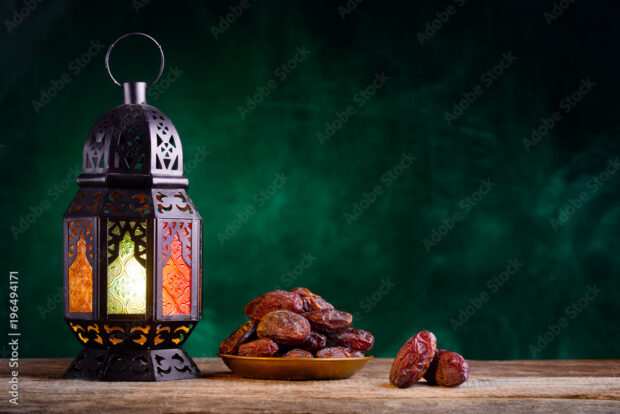
We spoke to Samir, who has been working Government Security Group (GSG) for about a year.
One of the main reasons why I wanted to speak to you about Ramadan is because I've found in all the various places where I've worked that there's been a lot of misconceptions. Some people are afraid to ask, and there have been negative experiences from other places. So I’ve always worked to raise awareness each year when it does come around.
What is Ramadan?
Ramadan is one of the five pillars of Islam, so it's very important to muslims. We fast from sunrise to sunset for 30 days and we can't have food or water. It’s a spiritual, important time for Muslims. We try to get close to God and we try to reflect about how we can improve as people and as Muslims as well. The reason as to why we do it is to reflect and acknowledge everything we have to be grateful for. As difficult as the month will be for us, we are reminded of people that are struggling in the world to have basic stuff like food and water.
You mentioned that you fast for 30 days. How does it impact your working life?
I find it difficult in the first week because it's hard for the body to adjust in terms of not having water during the day. It makes me tired, makes it harder to think and to use your brain. Essentially, you've got no energy. But it's just amazing how the body can adapt and get into a routine after a week. Even looking outside of Ramadan, fasting has been linked to a lot of health benefits in the way of detoxing the body.
How strict is the fast? What happens if you don't fast?
The general rule is if you're healthy and able, then you should be fasting. Obviously if you're sick or you have valid reasons (i.e. elderly, too young) you are exempt from fasting.Ramadan is one of the five pillars of Islam, with the other four being the shahada (intention), Salah (praying), Ramadan, Zakat (giving to charity) and Hajj (Pilgrimage). These are the five key practices that Muslims are obligated to fulfil throughout their lives. It's really important to Muslims all around the world.
Why is Ramadan specifically important to you?
Ramadan helps me focus on why I think it's important to be a Muslim and it helps me to be a better person as well. A lot of the good characteristics of being a good Muslim is also the same as being a good person. Giving to charity, being friendly, being caring, being grateful for what you have, sharing with the community. It's important to me because it really helps me get close to God for that month. And looking beyond the month, I try to keep the habit for the year.
What does a day during Ramadan look like?
Because we fast from sunrise to sunset, we would wake up about an hour before sunrise and have a meal before we start our fast. This is followed by an early morning prayer as well. And then we would abstain from food and water until sunset. The Salah pillar means we have our four or five daily prayers, and during Ramadan, these prayers are worth more in terms of reward. When I talk about reward, I mean it in an Islamic sense. If you follow the five pillars of Islam and you do what is required as a Muslim, then you'll get rewards from God. When we die and the Day of Judgment comes, the rewards we have banked during our time alive help determine where we end up. Every prayer is worth more than it would be in other times of the year. So we really try to focus more on making sure we're praying on time, reading the Quran (our holy book) and really trying to get close to God.
What is Eid?
Eid-al-Fitr happens at the end of Ramadan. It’s a day of celebration where we're celebrating the end of Ramadan and acknowledging that we now become closer to God. It marks the end of the fasting period and is a sign that we have fulfilled one of the Pillars of Islam for this year.
There is a second Eid, Eid-al-Adha which marks the end of Hajj (the pilgrimage pillar).
How can colleagues celebrate with you during the month? How can they be a bit respectful during this month?
Our sleep pattern will be different because we'll be waking up before sunrise to eat and drink our only meal of the day, and we’ll have less energy. So colleagues can help by being wary that your colleagues are fasting and they might be tired. We might not have the required energy that we normally would. And we may want to alter their working patterns to facilitate prayers. Altering working patterns for the month, such as starting later and finishing later, could be useful.
Where can people go to learn more?
There's mosques all over the country and you can go online. If you know someone who's a Muslim, who'd be happy to speak about you could ask them and be sure they'd be happy to tell you more about it.
The Civil Service also has its own active Muslim Network, who have published useful information covering what Ramadan is and how line managers can be more supportive. Go to the Civil Service Muslim Network website
We’d like to offer our immense thanks to Samir for sharing his experience, and we hope it has been useful to our readers.
GSP is keen to feature inspirational work colleagues from all backgrounds within the security profession. If you or someone you work with has an interesting story to share please email gsp@cabinetoffice.gov.uk.